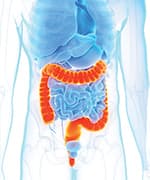LIFE EXTENSION MAGAZINE
Vitamin D Levels Linked to Better Cognitive Function in Parkinson’s Disease
Higher levels of vitamin D are associated with better cognitive function in Parkinson’s disease, according to a study published in the Journal of Clinical Neuroscience.*
Compared to healthy controls, levels of vitamin D were significantly lower in patients with Parkinson’s disease.
Differences were also noted in the levels of cognitive function within Parkinson’s disease patients.
For example, the highest levels of vitamin D were seen in those with normal cognition. Those with Parkinson’s dementia had the lowest vitamin D levels.
Editor’s note: The researchers concluded that, “These findings support the relationship between cognitive impairment and vitamin D in Parkinson’s disease patients.”
* Journal of Clinical Neuroscience 100 (2022) 192-195.
Calcium Intake May Protect Against Kidney Stones’ Recurrence
A study reported in Mayo Clinic Proceedings revealed a lower risk of recurrent kidney stone symptoms in people who had higher dietary intake of calcium.*
The study enrolled 411 individuals who were symptomatic kidney stone formers and 384 control patients who did not have the condition, following them for a median of 4.1 years. Responses to questionnaires about diet at the beginning of the study were analyzed for the intake of various nutrients.
A recurrence of kidney stone symptoms was experienced by 73 of the stone formers. After adjustment for various factors, lower dietary calcium intake remained a significant predictor of recurrent symptoms.
Editor’s Note: Life Extension considers an optimal calcium intake of 1,200 mg from both diet and supplements together. Many women supplement with 700 mg of calcium daily.†
†This dose assumes daily calcium dietary intake of 300-500 mg. A man may require less supplemental calcium, but aging men need skeletal-support nutrients, like calcium.
* Mayo Clin Proc. 2022 Aug;97(8):1437-1448
Cranberry Supplement Boosts Memory
Frontiers in Nutrition reported the finding of a brain benefit among a group of older men and women who consumed a supplement containing powdered cranberries.*
Sixty participants between the ages of 50 to 80 were given a supplement that contained the equivalent of one cup of fresh cranberries (providing 281 mg of proanthocyanidins) or a placebo daily for 12 weeks. Blood chemistry and cognitive function were assessed, and magnetic resonance imaging (MRI) scans of the brain were conducted before and after the treatment period.
Participants who received the supplement showed improved episodic memory performance and neural functioning compared to placebo.
Editor’s Note: Additionally, researchers reported the observation that there was a decrease in low-density lipoprotein (LDL) cholesterol during the course of the study. Cranberry juice or concentrated cranberry anthocyanin capsules have long been used to prevent urinary tract infections.
* Front Nutr. 2022 May 19;9:849902.
Colorectal Cancer Risk Reduced with Higher Folate Intake
Higher intake of folate and its synthetic form, folic acid, is associated with a lower risk of colorectal cancer (CRC), The American Journal of Clinical Nutrition reported.*
Based on data collected from more than 85,000 individuals who participated in the Nurses’ Health Study, folate intake was assessed using dietary questionnaires, with follow-up lasting from 1980-2016.
Greater folate intake 12-24 years before diagnosis was associated with a 7%-17% lower risk of colorectal cancer, and greater intake of folic acid 16-20 years before diagnosis was associated with a 9% reduced risk.
Editor’s Note: “Folate intake, both total and from synthetic forms, was associated with a lower risk of overall CRC after long latency periods. There was no evidence that high folate intake in the post-fortification period [the 1998 institution of mandatory folic acid fortification in the U.S.] was related to increased CRC risk in this U.S….population,” the authors concluded.
* Am J Clin Nutr. 2021 Jul 1;114(1):49-58.





